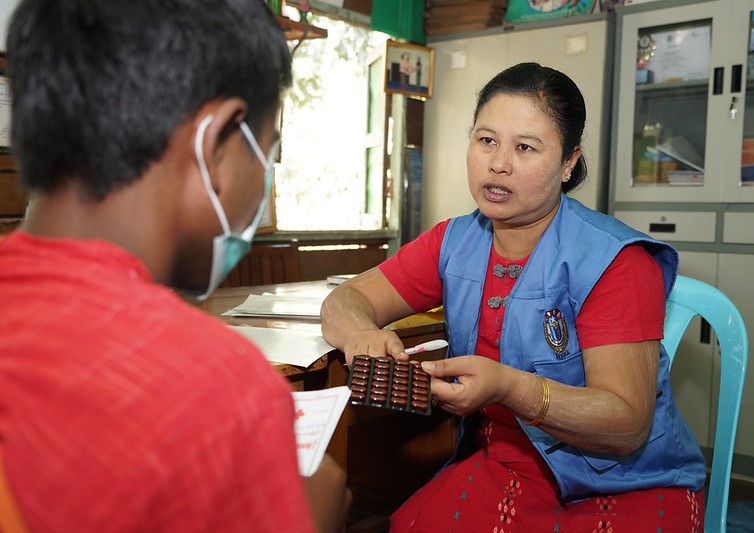
A modeling study estimates that scaling up preventive tuberculosis (TB) treatment for people with HIV/AIDS and household contacts of newly diagnosed TB patients could save nearly 850,000 lives by 2035, researchers reported yesterday in The Lancet Global Health.
To estimate the health impact, cost, and cost-effectiveness of implementing short-course TB preventive treatment (TPT) and contact investigation in four populations (people living with HIV/AIDS and household contacts in three age groups [under 5 years, 5 to 14, and over 15]) in 29 high-incidence countries, researchers from Johns Hopkins University, South Africa's Aurum Institute, and Switzerland-based Unitaid developed decision-tree and state-transition models to simulate the delivery of the intervention at a country level.
The team modeled scenarios in which coverage increased from 0% in 2022 to 90% in 2032 and remained at 90% through 2035.
We’ve lagged behind in keeping family members—especially children—free of the disease when a parent becomes sick.
The model estimated that scaling up TPT from 2023 through 2035 would prevent 0.9 people from developing TB and 0.13 TB deaths per 100 people living with HIV/AIDs, at an incremental cost of $15 per person. For household contacts, TPT would avert 1.1 cases and 0.7 deaths per 100 contacts for $21 per person. Cost-effectiveness was most favorable for household contacts under 5 years ($22 per disability-adjusted life year [DALY] averted) and contacts aged 5 to 14 ($104 per DALY averted).
If TPT is not scaled up for these populations, nearly 850,000 preventable TB deaths are projected to occur, including 700,000 among household contacts under 15.
Clear justification for cost
The study authors say that while the cost of scaling up TPT to such a large population would be substantial, the findings provide a clear justification for policy change.
"Although progress has been made in preventing TB among people living with HIV, we’ve lagged behind in keeping family members—especially children—free of the disease when a parent becomes sick," study author and Aurum Institute CEO Gavin Churchyard, PhD, said in a press release.
"This new study, we hope, provides the evidence needed to massively scale up the use of TB preventive treatment among those individuals at risk of developing TB."

 Yesterday in PLOS One,
Yesterday in PLOS One, 
















